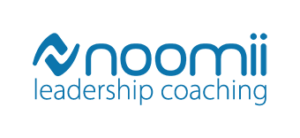Small Business Coach Guide: Your Path to Success in 2025
Small business owners face unprecedented complexity and opportunity as 2025 approaches. Navigating this landscape requires more than determination—it demands expert guidance. That is where a small business coach becomes indispensable, offering the strategic insight and accountability needed for sustainable success.
This guide delivers a clear, step-by-step roadmap for leveraging coaching to drive growth, resilience, and profitability in the year ahead. Inside, you will discover what coaching involves, its core benefits, how to select the right coach, the coaching process, actionable strategies for 2025, and real-world case studies.
Are you ready to overcome challenges and unlock your business’s full potential? Explore the actionable strategies and expert advice in this guide, and discover how a partnership with a coach can transform your journey.
Understanding the Role of a Small Business Coach
The modern small business coach is more than just a sounding board—they are a driving force behind business transformation. As entrepreneurship grows more complex in 2025, the need for expert guidance has never been greater. Understanding what a small business coach does and how they operate is the first step toward leveraging their expertise for your business success.

What Is a Small Business Coach?
A small business coach is a professional who partners with entrepreneurs to unlock growth and solve challenges. Over the past decade, their role has evolved from simple advice-giving to hands-on strategy and holistic support.
It’s important to distinguish coaching from consulting and mentoring. While consultants provide solutions and mentors share experience, a small business coach empowers you to find your own answers through structured guidance and accountability.
Key roles of a small business coach:
- Strategist for business planning and operational decisions
- Accountability partner, keeping you focused on goals
- Motivator during setbacks or uncertainty
For example, a small business coach might help you map out a new product launch while also supporting you through the stress of scaling up. Beyond practical advice, they provide emotional encouragement to keep you moving forward.
Common Challenges Faced by Small Businesses in 2025
Small business owners in 2025 face a landscape that is both promising and unpredictable. Market uncertainty, rapid digital transformation, fierce competition, and ongoing talent retention issues are at the forefront.
Recent research shows that 60% of small businesses struggle with overwhelm and lack of clear direction. A small business coach serves as a guide through these storms, helping owners prioritize and adapt.
Take the example of navigating post-pandemic economic shifts. Many business owners found themselves lost amid changing regulations and consumer behaviors. A small business coach can help you maintain focus and craft strategies to thrive, even when the ground keeps shifting.
How Small Business Coaches Drive Success
So, how does a small business coach create tangible results? They clarify your vision, help you set measurable goals, and break them down into actionable steps. Regular progress checks ensure you stay on track and adjust as needed.
For instance, a small business coach could help you develop systems for sales, marketing, or operations, all tailored to your unique business stage. This structured approach not only fosters growth but also builds resilience and innovation.
If you want to dive deeper into practical strategies and proven benefits, explore Business Coaching Strategies and Benefits to see how coaching delivers measurable outcomes.
The Coaching Relationship: What to Expect
A coaching relationship is built on trust, communication, and ongoing support. Most small business coaches offer several formats:
- One-on-one sessions for personalized attention
- Group coaching for shared learning
- Virtual or in-person meetings for flexibility
Engagements typically run as six-session packages or longer-term arrangements, with regular check-ins and support between meetings. For example, many coaches provide ongoing email access to answer questions as they arise.
The best results come from a personalized, ongoing relationship where your small business coach tailors their approach to your evolving needs. This structure ensures you’re never alone in your journey.
Key Qualities of an Effective Small Business Coach
What makes a great small business coach? Look for these top attributes:
- Experience in your industry or business stage
- Empathy and strong communication skills
- Adaptability to changing business environments
- Deep industry knowledge
The most effective coaches customize their approach, ensuring your goals drive every step.
The Benefits of Small Business Coaching in 2025
Small business owners in 2025 face a rapidly evolving landscape. A small business coach is more essential than ever for sustained growth, resilience, and profitability. Let’s explore the concrete benefits you can expect when you invest in small business coaching.

Tangible Outcomes for Small Business Owners
Partnering with a small business coach delivers measurable business improvements. Owners consistently report increased profitability, smoother operations, and greater scalability.
For example, client testimonials frequently highlight higher confidence and substantial business growth after working with a small business coach. According to recent industry data, coaching clients experience notable improvements in revenue and team performance. These outcomes demonstrate why a small business coach is a valuable investment for entrepreneurs aiming to thrive in 2025.
Enhanced Accountability and Focus
A small business coach transforms how owners prioritize their work. By helping you set clear deadlines and break down overwhelming tasks, a coach ensures you remain on track and focused on strategic objectives.
Accountability is a key differentiator. Businesses with a small business coach are far more likely to set actionable goals and follow through. Imagine reducing overwhelm simply by having an expert guide you to focus on what matters most each week.
Navigating Growth and Change
Growth brings complexity, and market trends shift quickly. A small business coach is your guide through scaling challenges, hiring decisions, and digital transformation.
Whether you are pivoting your business model or expanding your team, a small business coach supports you every step. Their guidance is especially valuable during periods of rapid change, positioning your business to adapt and thrive in uncertain times.
Emotional and Mental Support for Entrepreneurs
Entrepreneurship can be isolating and stressful. A small business coach offers more than strategic advice—they provide vital emotional support.
Countless client stories illustrate how a small business coach validates your struggles and boosts your confidence. This support helps you make better decisions and weather difficult periods, reinforcing that emotional guidance is as crucial as business strategy.
Building Repeatable Systems and Processes
A small business coach helps you develop efficient systems for marketing, sales, and operations. Standard operating procedures streamline your workflow and create a foundation for scaling.
Data shows businesses with established systems are 30 percent more likely to scale successfully. With a small business coach, you can build processes that free up your time and enable sustainable growth.
Long-term Vision and Exit Planning
Planning for the future is essential. A small business coach assists with succession strategies and exit planning, using proven frameworks to maximize your business’s value.
Early preparation leads to smoother transitions and higher valuations.
Step-by-Step: How to Choose the Right Small Business Coach
Choosing the right small business coach is one of the most important decisions you can make for your business in 2025. The right partnership can unlock growth, clarity, and resilience, but only if you follow a thoughtful process. Here is a proven, step-by-step roadmap to help you select the coach who will drive your business forward.

Assessing Your Needs and Readiness
Begin by taking an honest inventory of your business goals, challenges, and current mindset. Ask yourself: What do I want to achieve with a small business coach? Are you seeking help with launching, scaling, or preparing for a transition?
Write down the specific areas where you need support. This could include financial planning, marketing, leadership, or operational efficiency. Consider your readiness—are you open to feedback, willing to be held accountable, and committed to change?
A clear understanding of your needs ensures you connect with a small business coach whose expertise aligns with your business stage. Self-awareness at this stage lays the foundation for a productive coaching relationship.
Researching and Shortlisting Coaches
Once you know what you need, start researching potential coaches. Look for reputable sources such as business coach directories, industry associations, and trusted referrals from your network. In fact, 70 percent of successful coaching partnerships begin with a referral from a peer or business contact.
Create a shortlist by reviewing credentials, certifications, and client testimonials. Evaluate their areas of specialty and experience with businesses similar to yours. Use a simple comparison table to keep track:
| Coach Name | Credentials | Specialty | Testimonials | Referral Source |
|---|---|---|---|---|
| Coach A | ICF, MBA | Startups | 5 stars | Yes |
| Coach B | CPC | Growth/Scale | 4.8 stars | No |
This methodical approach ensures your small business coach search is intentional and focused on quality.
Interviewing and Evaluating Fit
Interview your top candidates to assess compatibility. Schedule discovery calls and ask about their coaching style, methods, and client success stories. Pay attention to how they communicate, listen, and respond to your concerns.
Chemistry is just as important as expertise. During these conversations, explore the coach’s approach to accountability, problem-solving, and support. For more on what makes a coach effective, explore the Qualities of a Great Leader.
Opt for a small business coach who demonstrates empathy, adaptability, and a track record of helping clients achieve results. Many coaches offer free consultations to help you gauge fit before making a commitment.
Understanding Coaching Packages and Pricing
Coaching comes in various formats, including one-on-one sessions, group programs, and ongoing support packages. Common structures include hourly rates, monthly retainers, or fixed-session bundles such as six-session packages with follow-up support.
When evaluating pricing, remember that the value of a small business coach should be measured by the impact on your business, not just the upfront cost. Here’s a quick comparison:
| Package Type | Typical Duration | Price Range (2025) | Best For |
|---|---|---|---|
| One-on-One | 3–12 months | $1,500–$10,000+ | Personalized support |
| Group Coaching | 6–12 weeks | $500–$2,500 | Peer learning |
| Ongoing Support | Continuous | $200–$1,000/month | Long-term growth |
A small business coach is an investment in your company’s future, so weigh the potential ROI and fit with your budget.
Setting Clear Expectations and Goals
Before you begin, define what success looks like for your coaching engagement. Set specific, measurable goals such as increasing revenue, improving team performance, or streamlining operations. Agree on key performance indicators (KPIs) and how progress will be tracked.
A great small business coach will help you clarify these outcomes and hold you accountable throughout the process. Document your expectations in writing to avoid misunderstandings and ensure both parties are aligned.
For ongoing accountability and sustainable results, consider programs that emphasize regular check-ins and structured feedback.
The Small Business Coaching Process: What to Expect
Understanding what to expect from the small business coach process empowers owners to make the most of their investment. Every business journey is unique, but the coaching path follows a structured framework. Let’s break down each stage, so you know exactly how a small business coach supports growth at every step.

Initial Assessment and Goal Setting
The journey with a small business coach begins with a thorough assessment. Your coach will dive into your business history, current performance, and future aspirations. This is not just a surface-level review—it’s a deep diagnostic. Expect to answer guided questions and use proven assessment tools that clarify your vision and pinpoint strengths or gaps.
Together, you’ll define realistic, motivating goals. The small business coach ensures these goals are specific, measurable, and aligned with your long-term vision. This stage sets a solid foundation. Owners often report feeling more focused and optimistic after this initial phase.
Developing a Customized Action Plan
After setting clear goals, your small business coach crafts a personalized action plan. This plan is never generic—it’s tailored to your business stage, industry, and unique challenges. You’ll break big objectives into manageable steps, each with clear timelines and responsibilities.
A good small business coach incorporates your team, resources, and market realities into the strategy. This might involve launching new products, refining operations, or addressing cash flow. With a step-by-step roadmap, you can move forward confidently, knowing you’re following a proven path designed for your specific needs.
Regular Coaching Sessions and Progress Tracking
Consistency is key to lasting growth. Your small business coach will schedule regular sessions, which might be biweekly or monthly, either virtually or in-person. These meetings are more than check-ins—they’re opportunities to review achievements, tackle obstacles, and adjust tactics.
Between sessions, many coaches offer email support or brief calls to keep you on track. Progress tracking is built in, using key performance indicators (KPIs) to measure movement toward your goals. This regular cadence keeps momentum high and ensures every action is purposeful.
Accountability and Course Correction
One of the most powerful benefits of a small business coach is accountability. You’ll have someone in your corner, ensuring deadlines are met and priorities stay clear. When unexpected challenges arise, your coach helps you adapt quickly.
A small business coach doesn’t just hold you to your commitments—they help you analyze what’s working and what isn’t. Course corrections are normal. Whether market conditions shift or a strategy falls short, your coach helps you pivot without losing sight of your overall vision.
Measuring Results and ROI
Throughout the process, your small business coach will help you measure results. This means tracking financial metrics, team performance, and qualitative feedback. By focusing on tangible outcomes, you can see the real impact of coaching on profitability, growth, and resilience.
Recent business coaching industry growth statistics show that companies working with coaches report higher revenue and improved operational efficiency. Investing in a coach is about more than advice—it’s about measurable returns.
Actionable Steps for Small Business Success in 2025
Achieving sustainable success in 2025 requires small business owners to be more strategic than ever. By following a proven roadmap, you can clarify your purpose, build a resilient foundation, and drive measurable results. A small business coach will guide you through each critical step, keeping you accountable and focused in a rapidly changing landscape. Here is a step-by-step guide to help you thrive.
Step 1: Define Your Vision and “Why”
Every successful journey starts with a clear vision. A small business coach will help you articulate the deeper reasons behind your business goals. This process goes beyond financial targets. It explores your personal motivations and the impact you want to create.
By defining your “why,” you gain a powerful sense of direction. Vision-driven businesses outperform their competitors because their leaders make decisions with purpose. A small business coach uses proven frameworks to help you clarify your core values and long-term aspirations.
Start by reflecting on what success means for you. Write down your mission statement and revisit it regularly. Your vision will become the North Star that guides every strategy and decision.
Step 2: Assess Readiness and Build a Strong Foundation
Before scaling up, you need to evaluate your mindset, skills, and resources. A small business coach provides readiness assessments to identify gaps in your preparation. This step is critical, as 50 percent of startups fail due to lack of planning and insufficient groundwork.
Assess your financial health, business model, and leadership capabilities. Are you prepared to handle growth, or do you need to strengthen your foundation? A small business coach can offer honest feedback and targeted support.
Create a checklist of essential skills, financial milestones, and operational systems. Address any weaknesses before moving forward. A strong foundation sets you up for lasting success in 2025.
Step 3: Develop a Strategic Business Plan
A robust business plan is your roadmap to success. With a small business coach, you will craft a plan that includes clear objectives, financial projections, and marketing strategies. This process ensures you are prepared for both opportunities and challenges.
Your coach will help you validate your business model and identify funding sources. Together, you will outline revenue targets, customer segments, and key performance indicators. A well-structured plan increases your chances of securing investment and achieving growth.
Regularly review and update your plan with your small business coach. Adjust your strategies as conditions change. Strategic planning gives you a competitive edge in a dynamic market.
Step 4: Implement Repeatable Systems and Processes
Scalability depends on efficient systems. A small business coach will guide you in creating standard operating procedures for marketing, sales, and operations. These systems help you delegate tasks, maintain quality, and reduce errors.
Businesses with documented processes scale twice as fast as those without. Your coach will help you map workflows, automate repetitive tasks, and create checklists for consistency. This frees up your time to focus on growth and innovation.
Consider using simple tables or flowcharts to document your core processes. Regularly review and improve these systems with your coach to ensure efficiency and adaptability.
Step 5: Focus on Growth, Profitability, and Team Development
Growth is not just about revenue. It involves building a strong team and maximizing profitability. A small business coach helps you identify opportunities for expansion, streamline costs, and develop leadership skills.
Work with your coach to create hiring plans, set performance goals, and foster a positive culture. Delegating effectively allows you to focus on strategic activities. Investing in team development leads to higher retention and better business outcomes.
Track your progress with measurable goals. Celebrate milestones with your coach and team. This collaborative approach drives sustained growth and keeps everyone motivated.
Step 6: Stay Accountable and Adapt to Change
Adaptability is essential in 2025. A small business coach provides ongoing accountability, ensuring you stay on track as markets evolve. Regular progress reviews make it easier to spot challenges early and pivot when necessary.
Your coach will help you break large goals into manageable tasks, set deadlines, and monitor outcomes. Businesses with accountability partners are 65 percent more likely to reach their objectives.
Stay proactive by seeking feedback, embracing new technologies, and refining your strategies. Accountability and agility give you a significant advantage in a fast-paced environment.
Step 7: Plan for Exit or Succession
Planning for your business exit or succession is crucial, even if it feels distant. A small business coach uses frameworks like SuRGE to guide you through the transition process. Early planning increases your business valuation and ensures a smoother handover.
Discuss your exit goals and timeline with your coach. Identify successors, outline transition steps, and create documentation for critical processes. This preparation protects your legacy and financial future.
If you want to stay on track and experience sustainable growth, consider accountability-focused coaching programs that provide regular check-ins, goal tracking, and actionable feedback. This approach helps small business owners overcome overwhelm and achieve real results.
Real-World Success Stories and Case Studies
Small business coach partnerships drive change not just in theory, but through real stories of transformation. The following case studies and testimonials reveal how the small business coach relationship creates lasting impact for entrepreneurs in 2025.
Transformational Coaching Experiences
Many entrepreneurs describe working with a small business coach as a turning point. Clients consistently report increased confidence, sharper focus, and measurable business growth after engaging in coaching relationships.
One bakery owner shared how her small business coach provided “above-and-beyond” support, helping her develop a strategic plan and overcome self-doubt. Another testimonial highlighted customized guidance that led to a 30 percent revenue increase within six months.
5-star reviews often emphasize the personalized attention and actionable feedback a small business coach delivers. These real-world stories demonstrate that coaching is not just about advice, but about unlocking potential and driving true change.
Overcoming Overwhelm and Complexity
Launching or scaling a business in 2025 brings complexity and moments of overwhelm. Many founders face decision fatigue, unclear priorities, and shifting market conditions. A small business coach acts as a steady guide, helping owners break down chaos into clear, manageable steps.
For example, a tech startup founder felt paralyzed by competing demands and rapid growth. With a small business coach, she learned to prioritize tasks and regain confidence. This type of support is echoed in similar stories, where owners credit their coach with helping them navigate uncertainty.
To see more examples of how coaching helps entrepreneurs overcome adversity, visit Overcoming Adversity in Business for additional insights and case studies.
Building Profitable, Scalable Businesses
One of the most tangible outcomes of partnering with a small business coach is building a business that is both profitable and scalable. Owners frequently share how their coach guided them through systematizing operations, improving team performance, and increasing revenue.
A marketing agency owner, for instance, worked with a small business coach to implement repeatable sales processes and develop a clear hiring framework. Within a year, the business doubled its client base and expanded its team.
Strategic coaching also supports the transition from solopreneur to team leader, fostering leadership and operational excellence. For those interested in deepening their understanding of leadership’s impact on business growth, Leadership and Executive Coaching Insights provides valuable information.
The Value of Long-Term Coaching Relationships
Long-term relationships with a small business coach offer compounded value. Many clients continue coaching for years, citing ongoing support, fresh perspectives, and adaptability as key reasons for staying engaged.
Monthly coaching calls, goal reviews, and regular accountability check-ins help business owners maintain momentum and adapt to new challenges. As one client noted, “My small business coach is my go-to partner for every major decision, keeping me focused and resilient through every phase.”




Leave a Reply
Want to join the discussion?Feel free to contribute!